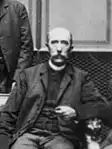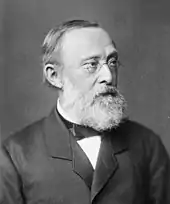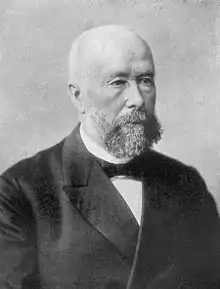1890 German federal election
Federal elections were held in Germany on 20 February 1890.[1] The Centre Party regained its position as the largest party in the Reichstag by winning 106 of the 397 seats, whilst the National Liberal Party, formerly the largest party, was reduced to 42 seats. Despite receiving the most votes, the Social Democratic Party won only 35 seats.[2] Voter turnout was 71.5%.[3]
| |||||||||||||||||||||||||||||||||||||||||||||||||||||||||||||||||||||||||||||||||||||
All 397 seats in the Reichstag 199 seats needed for a majority | |||||||||||||||||||||||||||||||||||||||||||||||||||||||||||||||||||||||||||||||||||||
|---|---|---|---|---|---|---|---|---|---|---|---|---|---|---|---|---|---|---|---|---|---|---|---|---|---|---|---|---|---|---|---|---|---|---|---|---|---|---|---|---|---|---|---|---|---|---|---|---|---|---|---|---|---|---|---|---|---|---|---|---|---|---|---|---|---|---|---|---|---|---|---|---|---|---|---|---|---|---|---|---|---|---|---|---|---|
| Turnout | 71.5% | ||||||||||||||||||||||||||||||||||||||||||||||||||||||||||||||||||||||||||||||||||||
| |||||||||||||||||||||||||||||||||||||||||||||||||||||||||||||||||||||||||||||||||||||
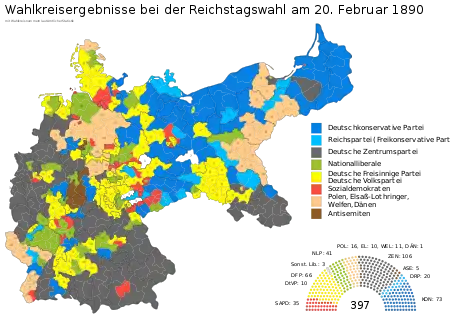 Map of results (by constituencies) | |||||||||||||||||||||||||||||||||||||||||||||||||||||||||||||||||||||||||||||||||||||
| |||||||||||||||||||||||||||||||||||||||||||||||||||||||||||||||||||||||||||||||||||||
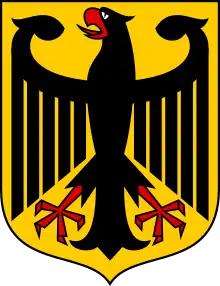 |
|---|
| This article is part of a series on the politics and government of Germany |
Results
 | ||||
| Party | Votes[a] | % | Seats | +/– |
|---|---|---|---|---|
| Social Democratic Party | 1,427,300 | 19.7 | 35 | +24 |
| Centre Party | 1,342,100 | 18.6 | 106 | +8 |
| National Liberal Party | 1,177,800 | 16.3 | 42 | −57 |
| German Free-minded Party | 1,159,900 | 16.0 | 66 | +34 |
| German Conservative Party | 895,100 | 12.4 | 73 | −7 |
| German Reich Party | 482,300 | 6.7 | 20 | −21 |
| Polish Party | 246,800 | 3.4 | 16 | +3 |
| German People's Party | 147,600 | 2.0 | 10 | +10 |
| German-Hanoverian Party | 112,700 | 1.6 | 11 | +7 |
| Alsace-Lorraine Party | 101,100 | 1.4 | 10 | −5 |
| Anti-Semites[b] | 47,500 | 0.7 | 5 | +4 |
| Danish Party | 14,000 | 0.2 | 1 | 0 |
| Others | 74,600 | 1.0 | 2 | 0 |
| Invalid/blank votes | 33,100 | – | – | – |
| Total | 7,261,600 | 100 | 397 | 0 |
| Registered voters/turnout | 10,145,900 | 71.5 | – | – |
| Source: Nohlen & Stöver, DGDB | ||||
a Figures for votes are rounded.[1]
b Of the five seats won by the Anti-Semites, four were held by Otto Böckel's Anti-Semitic People's Party and one by Max Liebermann von Sonnenberg's German Social Anti-Semitic Party.[4]
References
- Dieter Nohlen & Philip Stöver (2010) Elections in Europe: A data handbook, p762 ISBN 978-3-8329-5609-7
- Nohlen & Stöver, p789
- Nohlen & Stöver, p774
- Bracher, KD (1970) The German Dictatorship, p61
This article is issued from Wikipedia. The text is licensed under Creative Commons - Attribution - Sharealike. Additional terms may apply for the media files.
.jpg.webp)
